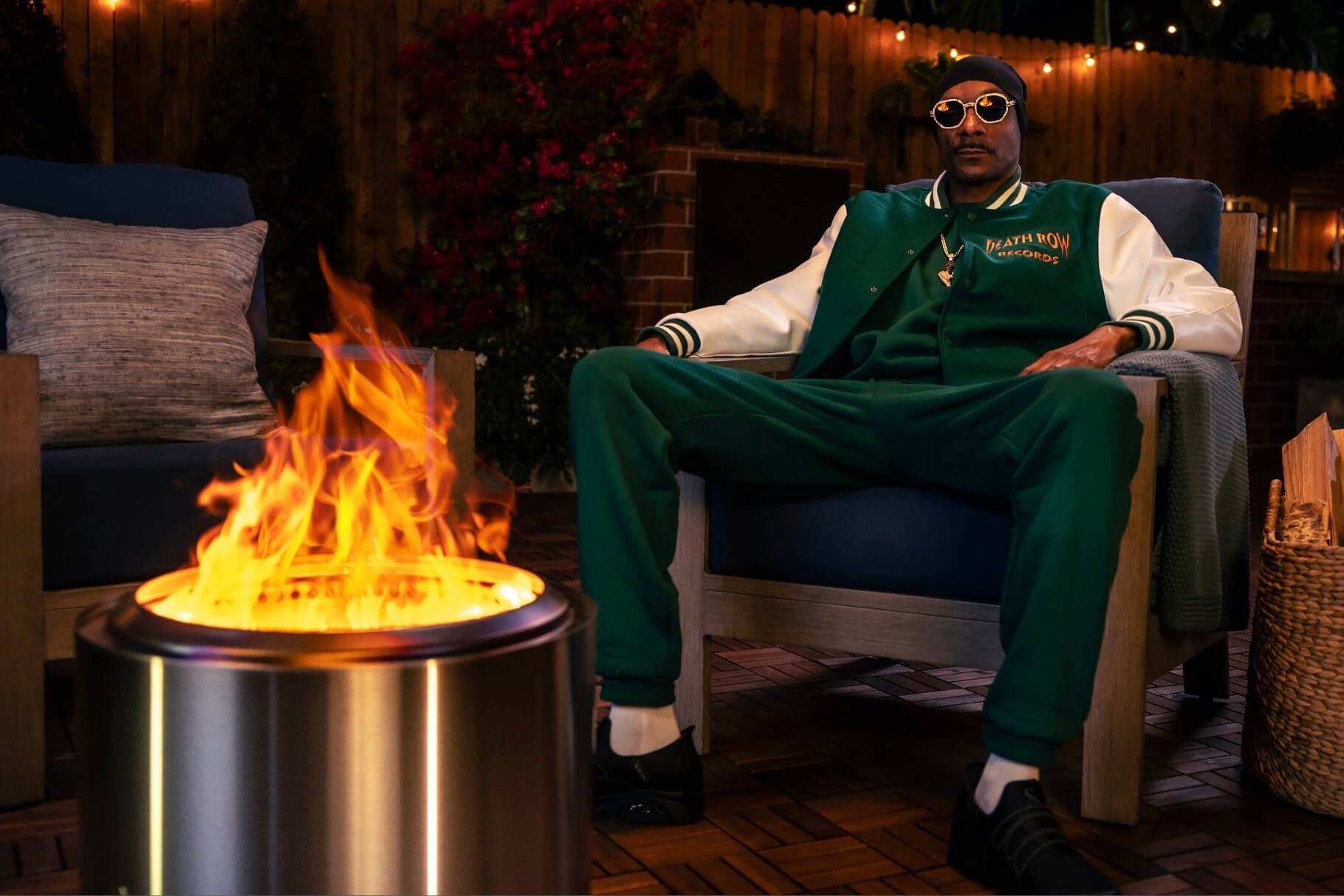.jpg)
Table of Content:
Solo Brands, the company behind Solo Stove, Oru Kayaks and other lifestyle brands, recently saw a big leadership change with Christopher T. Metz taking the helm as CEO. This move comes in the wake of some interesting times at the company, especially around their marketing strategies.
A key part of their recent marketing efforts was a high-profile campaign featuring none other than Snoop Dogg (one that we recently covered), promoting Solo Stove. It was a bold and clever strategy, aimed at really getting the Solo Stove brand out there. The campaign had Snoop humorously claiming he was "quitting smoke," playing on his public persona while highlighting the smokeless feature of Solo Stove's fire pits. It was catchy, it got people talking, and it definitely upped the brand's visibility.
However, this buzz didn't quite translate into the sales spike they were expecting. Despite the high engagement and increased brand awareness, the campaign didn't deliver the anticipated boost in direct-to-consumer sales. Essentially, while Solo Brands succeeded in capturing the public's attention, this didn't fully convert into a significant increase in purchases.
Consequently, Solo Brands had to revise its financial outlook for the year. Initially aiming for revenues between $520 million to $540 million, they've now adjusted those expectations to the $490 million to $500 million range. Similarly, the anticipated EBITDA margin was scaled back from 17-18% to a more modest 14-15%.
This scenario paints a picture of the challenges in balancing creative marketing with tangible sales outcomes. Bringing in Christopher Metz, with his impressive track record in consumer goods, seems to be Solo Brands' strategic response to these challenges. Metz's past success in similar roles suggests he might have the right mix of skills and experience to steer Solo Brands towards more effective growth strategies, aligning buzz-worthy marketing with solid sales results.
So, while the Snoop Dogg campaign was a fascinating episode in Solo Brands' journey, the focus now shifts to how the company, under Metz's leadership, will adjust its strategies to convert brand popularity into profitable growth.
Watch the Snoop Dogg x Solo Stove ad here.

Why This Matters
The recent developments at Solo Brands, particularly the appointment of Christopher T. Metz as CEO and the outcomes of their Snoop Dogg marketing campaign, hold several significant implications in the DTC world.
1. The Impact of Celebrity Marketing on Sales: The collaboration with Snoop Dogg was a high-profile marketing move aimed at boosting Solo Stove's brand awareness. While it succeeded in gaining attention, it didn't translate into the expected sales lift. This highlights a crucial aspect of celebrity endorsements and marketing campaigns: while they can significantly increase a brand's visibility, this doesn't always equate to an immediate or substantial increase in sales. It underscores the need for companies to align their marketing strategies closely with sales objectives and consumer behavior.
2. Leadership and Strategic Direction: The appointment of Christopher Metz as CEO is pivotal. Metz brings a wealth of experience from his previous role at Vista Outdoor, where he successfully grew the company. His expertise in consumer and durable goods could be vital in steering Solo Brands towards more effective growth strategies. This change at the top reflects the company's commitment to adapting its approach in response to market and operational challenges.
3. Financial Revisions and Market Performance: The revision of the financial outlook, with a lowered revenue forecast and adjusted EBITDA margins, is significant for investors and stakeholders. It reflects the realities of the market and the company's performance. These revisions can impact investor confidence and the company's stock performance. They also demonstrate the company's transparency in its operations, an essential factor for maintaining trust among investors.
4. Direct-to-Consumer vs. Wholesale Strategies: The varied performance between Solo Brands' direct-to-consumer and wholesale divisions sheds light on the complexities of different sales channels. While the direct-to-consumer sales didn't meet expectations, the wholesale division performed well. This scenario could influence the company's future strategic decisions regarding channel focus and investment.
5. The Evolving Outdoor Lifestyle Market: Solo Brands, with its portfolio of lifestyle brands, is a player in the dynamic outdoor lifestyle market. Changes in leadership, strategy, and marketing approaches within such a company can have broader implications for market trends, consumer preferences, and competitive dynamics in this sector.
The changes at Solo Brands, marked by the leadership shift and the reflections on its marketing strategy, are more than just corporate maneuvers. They offer insights into broader marketing effectiveness, leadership impact, financial accountability, and strategic agility in the evolving consumer goods landscape.
Key Takeaways for DTC Brands
The recent shifts at Solo Brands, highlighted by their Snoop Dogg campaign and the appointment of a new CEO, Christopher Metz, provide valuable insights for Direct-to-Consumer (DTC) brands. The Snoop Dogg campaign, while successful in enhancing brand awareness, fell short in translating this visibility into substantial sales growth. This situation emphasizes the critical need for DTC brands to not only create engaging marketing content but also ensure these efforts are strategically aligned with driving sales and customer conversions.
Furthermore, the leadership change at Solo Brands signifies the importance of adaptability in business strategy. DTC brands must remain agile, capable of pivoting strategies based on market feedback, performance data, and evolving consumer trends, especially in sectors like outdoor lifestyle products. This adaptability extends to financial management as well, as evidenced by Solo Brands’ proactive approach in adjusting financial forecasts and maintaining transparency with stakeholders.
Building deeper customer engagement goes beyond the initial buzz of marketing campaigns. For DTC brands, forming lasting relationships with customers involves consistent engagement, high-quality products, and excellent customer service. Additionally, balancing various sales channels, as seen in Solo Brands' contrasting performances in direct-to-consumer and wholesale divisions, is crucial. This balance helps in optimizing resource allocation and maximizing market reach.
Lastly, continual innovation in product development is key for DTC brands to stay relevant in competitive markets. Investing in research and development, understanding customer needs, and regularly updating product lines are essential strategies for keeping the brand fresh and appealing to consumers.
In essence, Solo Brands' experiences offer a comprehensive lesson in aligning marketing with sales, embracing strategic flexibility, financial accountability, and prioritizing customer engagement and product innovation for DTC brands navigating today's dynamic market landscape.
Related content
Turn your videos into sales
Boost conversions by up to 30% by turning your existing TikToks and Reels into shoppable videos directly on your Shopify store.












